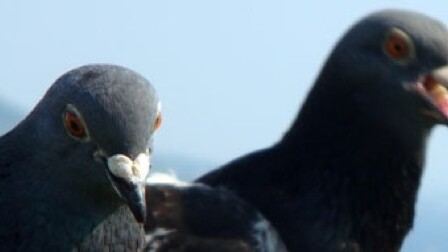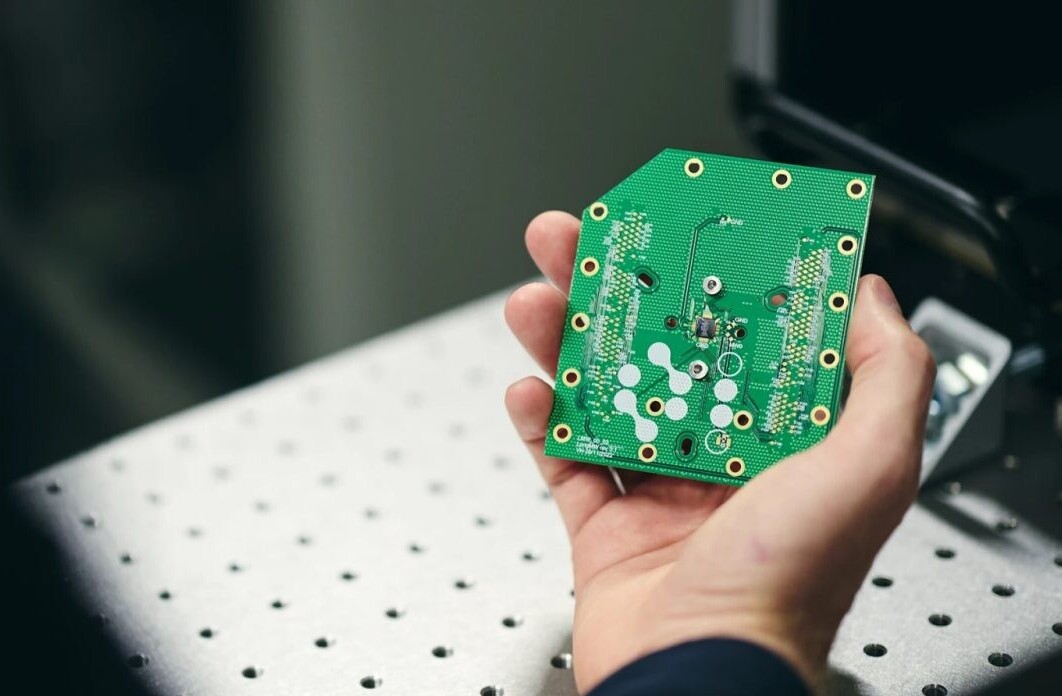
Fredo and Pid’jin is a Web comic that tells the amusing and sometimes bizarre stories of two pigeons on a mission to destroy to world.
Launched in 2006 by Romanian friends Eugen Erhan and Tudor Muscalu, the comic has been featured on blogs like Gizmodo while being regularly shared on sites like Reddit and Digg.
Despite its popularity, the pair have struggled to make money from Fredo and Pid’jin. Now Erhan has quit his dayjob to make a go of running the comic full time. We caught up with Tudor Muscalu to discover the story behind it, and find out what’s on the horizon.
TNW: How did you two meet, and how did the idea for the comic come about?
TM: We’ve been friends ever since 7th grade. After we both had finished college and one day Eugen said he wanted to do a comic on the Internet, “short like Dilbert”, he said. Later that day he called me on the phone and asked me to come up with something in 5 minutes. He called back and I had two ideas. One was about two white pigeons on a mission to destroy the world – the second idea is forever lost. We did the 5 minute dare again to get the names.
White pigeons usually symbolize good things like peace or the Holy Ghost, and with them having a horribly evil mission we’d get some symbolic conflict and tension.
TNW: How did you go about trying to build an audience when you started?
TM: In the beginning we had some modest organic growth, it was mainly word of mouth. StumbleUpon was our first major channel through which we got exposure to the world at large.
Pretty early on we had a realization. Our best chance at fame was to get people to really, really love our two characters. For this to happen, the story has to show you who the character really is. What will he do under pressure, what is he really made of? That’s why our mantra has been to always write it as if it was a sitcom. And it worked great, the more pain we put in Pid’jin’s way, the more people loved him.
TNW: At what point did you realise that you had a hit on your hands?
After a few years some of our episodes started getting picked up in social news sites, like Digg or Reddit.
We started thinking our comic might make it to the land of fame and groupies the day before Apple launched the original iPad. At that time no one knew for certain what Apple was going to launch and we set it up so that Steve would surprise everyone and launch Duke Nukem Forever (also not more than a rumour at that time). We made the front page of Digg, and stayed as the top story for over 24 hours, beating the live reports from the iPad launch. Then we got picked up by Gizmodo, Fake Steve Jobs’ blog, and many others.
TNW: Are there ever any times when you’ve felt like giving up? 6 years is a long time to run a Web comic.
TM: Yes, one autumn in 2008. But then we met Mike Reiss, one of the creators of The Simpsons, who had come to Romania for an animation festival.
We showed him a few episodes and he loved them. We were ecstatic. Mike, who had won 2 Emmy awards, told us we were on the right track. This energised us and gave us the reassurance we needed to not quit. This was just a couple of months before we started getting picked up on Digg.
TNW: How is the comic monetized at the moment?
TM: For the first years we believed we should concentrate on growing, and didn’t really try to make any money. We recently started selling merchandise through Neatorama and local Romanian sites. And it took us 6 years, but now we have banner ads on our site.
TNW: What are the challenges you face with finding an ad network?
TM: It’s fair to admit that we’re both beginners at dealing with Internet advertising, and we’re still working on getting the word out that we’re a really nice channel you’d want to advertise on. At this time we’re working with a few good ad networks.
People assume webcomics are targeted at a small niche. And it’s true in many cases. But we try to make Pidjin as universally accessible as say, Friends or Futurama. And, if we continue to have many readers, we’re hoping to convince advertisers of our general appeal.
TNW: Do you have any other plans for the future?
TM: We plan to keep at it and make Fredo & Pid’jin world-famous. Eugen has quit his job with a very successful branding consultancy to put all his time and energy into making Pid’jin a viable source of income.
Just to make sure you get the picture, please imagine a yacht made of solid gold, anchored by the most beautiful island man has ever pried from the stingy hands of God. That’s Pid’jin.
TNW: Have you noticed growing competition in the web comic scene? Who’s work do you admire?
TM: Competition has always been amazing in the webcomic scene, not a day goes by without at least some comics publishing something awesome.
We started out loving Sinfest, SMBC, XKCD and Dilbert, but very often we come across less-known gems such as SeeMikeDraw or Space Avalanche. They all have emotion, humor and a unique voice. The bar is pretty high, and anyone who wants to stand out with a webcomic has to work very hard.
TNW: What 3 pieces of advice would you give someone starting a webcomic today?
TM: a) Don’t be afraid to experiment. Especially when you’re starting out, change and reinvent your comic at the faintest whim, even if it makes little logical sense. Trust your budding new senses. This will nurture your instinct.
b) Don’t delay the monetization stage too much. One day opportunity will knock at your door faster than you can design ad banners.
c) Create a wonderful environment around your comic project. This is your chance at making a living doing something you love, so make sure you don’t bring stress and pain into it.
Get the TNW newsletter
Get the most important tech news in your inbox each week.







